You have taken the spiritual path to find new meaning and perspectives in life. But instead of experiencing spiritual awakening, you got stuck with a spiritual emergency. Did you do anything wrong?
While most people on a spiritual path experience meaningful insights, alignment and inner peace, you feel suffocated. You feel burdened by the weight of depression, anxiety and an existential crisis. You feel like losing your mind and going insane. Nothing makes sense to you anymore and you can’t function normally in your daily life.
Is it all inside your head? Are you going insane? Or is it that you are not worthy enough for a spiritual awakening?
The truth is you are experiencing a spiritual emergency and it is not that uncommon. You haven’t done anything wrong. It’s just a part of the process.
Related: What Is Spiritual Awakening? 23 Major Signs and Symptoms
What is a spiritual emergency?
Spiritual emergency, also known as spiritual crisis, is a type of identity crisis caused by a random spiritual experience that can drastically alter our meaning system.
This can include our self identity, beliefs, purposes, values, attitude, goals & focus. Such an experience can disrupt our mental and emotional wellbeing and impair our ability to function normally in social or professional settings.
Experiencing a spiritual awakening can often lead to a spiritual crisis. When the pace of spiritual awakening is too fast for you to process, your mind and body can become confused, afraid and destabilized.
A spiritual emergency can also be caused by a variety of experiences such as –
- Grief and trauma
- Near-death experiences
- Mystical experiences
- Paranormal experiences
- Existential crisis
- Other religious practices
In fact, people coping with grief, depression or a terminal illness are especially vulnerable to experiencing a spiritual crisis.
“Spiritual crisis can be described as a unique form of grieving or loss, marked by a profound questioning of or lack of meaning in life, in which an individual or community reaches a turning point, leading to a significant alteration in the way life is viewed,” explains a 2009 study.
Researchers have observed that when you are unable to deal with this intense experience properly, it can lead to abnormal emotional and physical responses, loss of close relationships and acute illnesses.
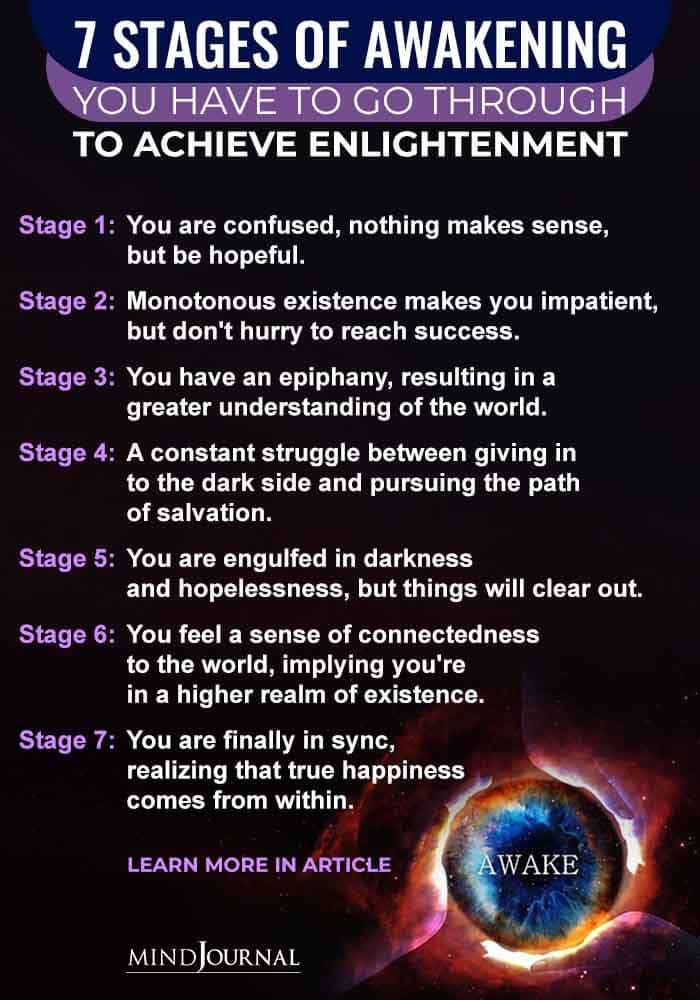
Signs of spiritual emergency
Here are some of the most common spiritual emergency symptoms that you need to look out for –
- You have difficulty functioning normally in daily life
- You have trouble focusing on your career as you have become highly sensitive
- You have developed sudden medical illnesses that can’t be explained
- You have started to observe more synchronicities or meaningful coincidences in your life
- You struggle with maintaining your mental stability and feel like you are going crazy
- You have a strong sense of divine wholeness or unity
- You feel strongly connected to the spiritual realm and communicate with spirit guides
- You feel extremely overwhelmed and burdened
- You have strong psychic and intuitive abilities
- You experience ego-inflation and believe you are a reincarnation of divine figures like Jesus, Krishna or Buddha
- You have sleep difficulties and experience insomnia, nightmares and night terrors
- You have difficulty distinguishing between your inner world and the reality outside
- You experience a wide range of intense emotions
- You experience delusions and hallucinations
- You struggle with making logical decisions and discussions
- You have detailed flashbacks about your past life
- You experience intense physical sensations like strange vibrations, burning or shivering
- You believe you have been possessed by a separate consciousness or abducted by aliens
- You feel detached & dissociated from your current environment
What causes a spiritual emergency?
Anyone can experience spiritual emergencies, whether you are an atheist or religious. Although there are no known causes that lead to the development of a spiritual crisis, there may be certain factors, such as shock, that can trigger this intense experience.
Here are some of the most common triggers:
1. Physical factors
Psychospiritual crises can often be caused by certain physical triggers such as prolonged sleep deprivation, surgery, chronic or terminal illness, accidents etc.
Childbirth, abortion, miscarriage or even an intense sexual experience can also lead to a spiritual crisis in some women.
2. Emotional factors
Certain traumatic experiences, such as emotional abuse, a divorce or break up, death of a loved one, unemployment or job loss, multiple failures or loss of possessions can act as a trigger.
Related: What is Spiritual Transformation? 9 Signs You’re Evolving
3. Spiritual factors
Involvement in spirituality and spiritual practices, like meditation, can also trigger a spiritual emergency. Ongoing spiritual practices help to promote our spiritual experiences which can eventually cause an intense psychospiritual crisis.
It is believed that more than external factors, our willingness to accept inner transformation plays a crucial part. Moreover, trauma, psychological resilience, & conscious and unconscious processes can also be prominent triggers.
Types of spiritual emergency
A spiritual emergency can be of multiple types. However, there are two major categories of a spiritual crisis, namely:
A. Mystical Psychosis
This involves symptoms such as mania and hallucinations. During this episode, the energy flows upwards into higher levels of consciousness. For instance, Kundalini awakening or interacting with spirit guides.
B. Dark Nights of the Soul
Depression is one of the main symptoms of a dark night of the soul. Here, the energy moves inwards and flows into the unconscious and subconscious levels. Drug addiction is one of the most common symptoms of this category.
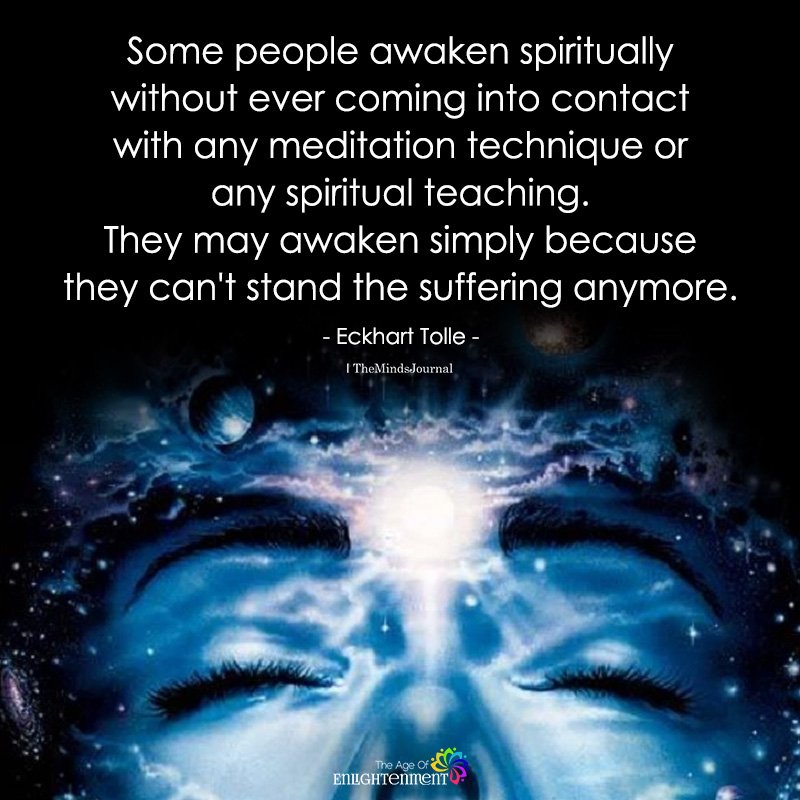
12 types of spiritual crisis
There can be many other types of spiritual emergencies apart from the 2 main categories mentioned above.
Here are the 12 types of spiritual emergencies you should know about:
- Crisis of psychic opening
- Psychological Renewal
- Shamanic crisis
- Possession states
- Dark Night of The Soul
- Awakening of Kundalini
- Episodes of unitive consciousness (peak experiences)
- Near-death experiences (NDEs)
- Past-life experiences
- UFO encounters and alien abduction experiences
- Communications with spirit guides and “channeling”
- Drug addictions
Related: What Is Spiritual Bypassing? Beware of These 10 Types
Spiritual emergency and mental health
The term “spiritual emergency” was coined by psychiatrists Stanislav and Christina Grof in a 1980 book titled “Spiritual Emergency: When Personal Transformation Becomes a Crisis”.
As defined by Stalinav Grof, it is a process that includes unusual thoughts, extrasensory perception, disorganized behaviour, and strong spiritual beliefs. Such crises may occur when spiritual experiences are processed too quickly or aren’t properly integrated. This can lead to psychological issues or mental health problems.
Although the issue has gained considerable attention lately, most people are still unaware of the spiritual crisis, especially spiritual communities. In fact, it is listed under “Religious and Spiritual Problems” in The Diagnostic and Statistical Manual of Mental Disorders (DSM-V).
Unfortunately the condition is often misdiagnosed as very few mental health experts are trained properly to diagnose and treat a spiritual emergency. However, it is often diagnosed as pathological and healthcare professionals often treat people suffering from a spiritual emergency with suppressive medications.
Experiencing a spiritual emergency
According to Stanislav and Christina Grof, psychospiritual experiences such as spiritual crises can have a significant impact on our personal transformation.
When you become aware of your spiritual mental state and deal with it properly, instead of treating it with common suppressive psychiatric routines, it can actually be beneficial for you.
When you are able to successfully manage your spiritual emergency, you can experience:
- Evolution of consciousness
- Psychological improvements
- Psychosomatic & emotional healing
Anyone can experience spiritual emergency at any stage of their life. Whether you are spiritual or not actively pursuing spiritual awakening, you can still experience the symptoms of spiritual crisis.
Trauma and shock due to a terminal illness, major life changes or a death in the family often triggers this condition which can sustain for days, weeks, months or even years. The intensity of the experience is often determined by your environment and how supportive your family and friends are.
Related: 5 Types of Spiritual Healing And The Dark Side of It
These psychospiritual experiences are often experienced by shamans, yogis, mystics and saints who confirm the healing and transformative power of this experience.
While it may be seen as a “crisis” or “emergency”, it is actually capable of helping you reach a higher level of consciousness. Hence, several experts consider this experience more as a spiritual emergence that helps you “emerge”.
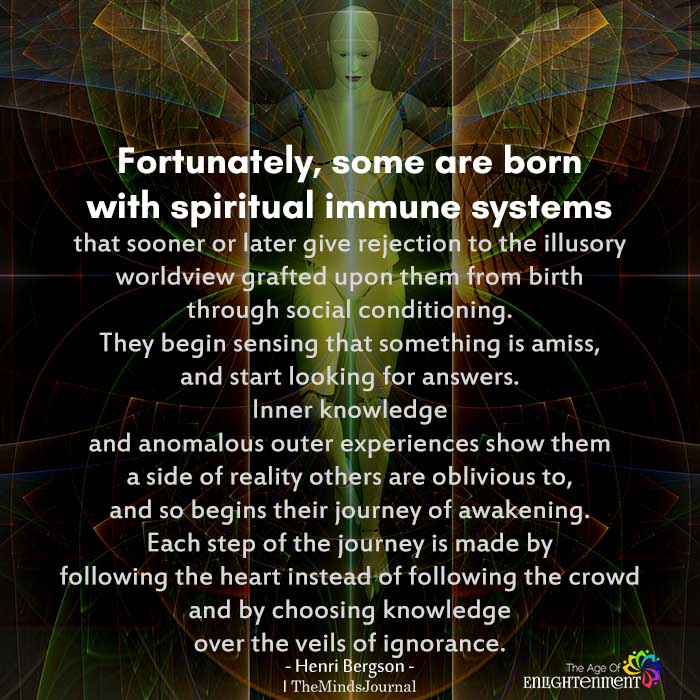
Is it a spiritual experience or a mental illness?
The intensity of a spiritual crisis can often make you wonder if you are going through a spiritual awakening or have an episode of psychosis. If you are trying to find the answer to spiritual emergency vs psychosis, then it might be harder to answer more than you think. The difference is not that clear as there is some overlapping and similarities between the two.
Studies have found that individuals with severe mental illnesses tend to be highly spiritual & religious and spirituality & religiosity “can have both positive and negative associations with health.” This is why it can be really difficult to find the line between a spiritual emergency and psychosis.
While we should not look at mystical and spiritual experiences from a medical point of view, we shouldn’t romanticize serious medical and mental health problems either. Unfortunately, many individuals going through a spiritual crisis are often medically misdiagnosed and “treated”, even forcibly at times.
Misdiagnosing a psychospiritual crisis can be even more damaging as suppressing it can lead to trauma in the long run, instead of experiencing the benefits. It can rob you of your opportunity for spiritual growth and healing, experiencing an awakened mind and living a richer, more meaningful life.
According to one 1995 study, two patients going through spiritual crises were misdiagnosed with schizophrenia. The researchers reported that “Perhaps this experience is not a disease, but many – especially if not understood by oneself, the nearest relations and the medical profession – cause mental illness.”
The study concluded that this process “falls outside” the area of psychosis and when the spiritual experience is “allowed” to progress to its natural completion, it can lead to “deep psychological balance, strength, and maturity.”
This is why it is crucial that before you seek medical help for your symptoms, make sure the professional is familiar with spiritual emergencies.

How to deal with a spiritual emergency
Do you know what to do in a spiritual emergency? How can you cope with such intense thoughts and emotions and balance your spiritual energy? Well, there are some simple ways.
Once you learn how to cope with a spiritual crisis, it can help you experience enhanced psychological functioning and personal transformation.
Here is how to cope with this force of nature and use this divine energy to your advantage:
- Identify and analyze the reasons for your spiritual emergency
- Accept your suffering and surrender yourself to the experience
- Understand that there is deeper meaning and purpose behind your suffering
- Avoid spiritual practices temporarily
- Practice mindfulness instead of meditation
- Connect with nature by spending more time in natural environments
- Try ecotherapy to experience the energy of the earth
- Eat healthy food that provide nourishment to your mind and body
- Get enough sleep to counter the effects of sleep deprivation
- Pay attention to the needs of your body and try to meet them
- Exercise and stay physically active for a few minutes every day
- Avoid stressful and anxiety-inducing situations
- Reduce the load of your responsibilities
- Seek support from loved ones and medical professionals, if needed
Related: How to Start Your Spiritual Journey: 7 Illuminating Steps
The power of spiritual emergency
While your spiritual emergency can initially cause intense pain and suffering, when the process is allowed to reach its conclusion, it can feel extremely liberating, powerful and positive, making you feel like you are being reincarnated.
While these messy awakenings are often misunderstood, it can lead to serious psycho-spiritual development when understood and managed properly.
Frequently Asked Questions (FAQs):
What is a spiritual psychosis?
It refers to psychological challenges and mental health issues, such as hallucinations, caused by spiritual experiences and practices.
What is a spiritual overflow?
In spirituality, overflow refers to God’s desire for his devotees. It makes us stay positive, see good in others, help those in need and let our inner light shine bright.
What is spiritual burnout?
Spiritual burnout refers to constant mental, physical and emotional exhaustion, overwhelm and stress with spiritual and religious practices.
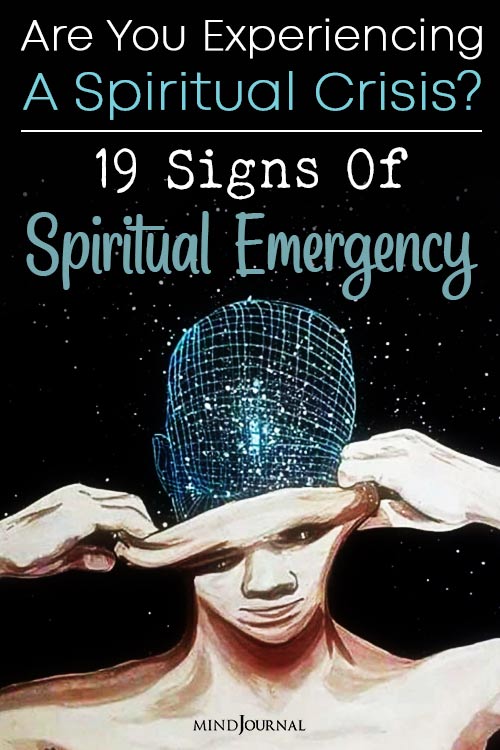
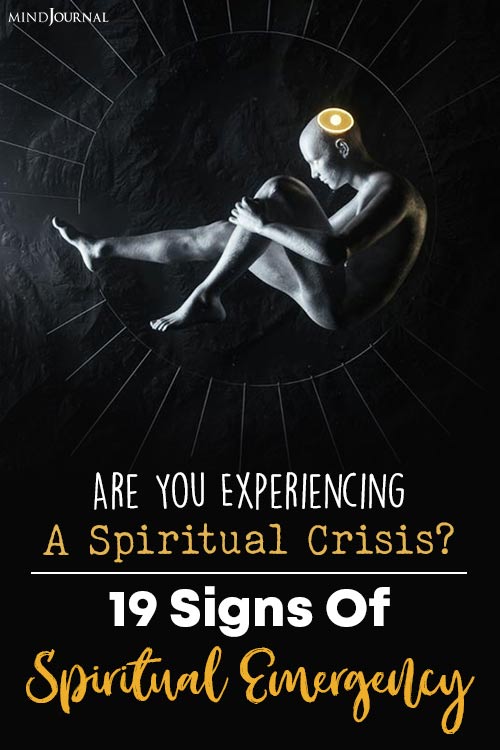


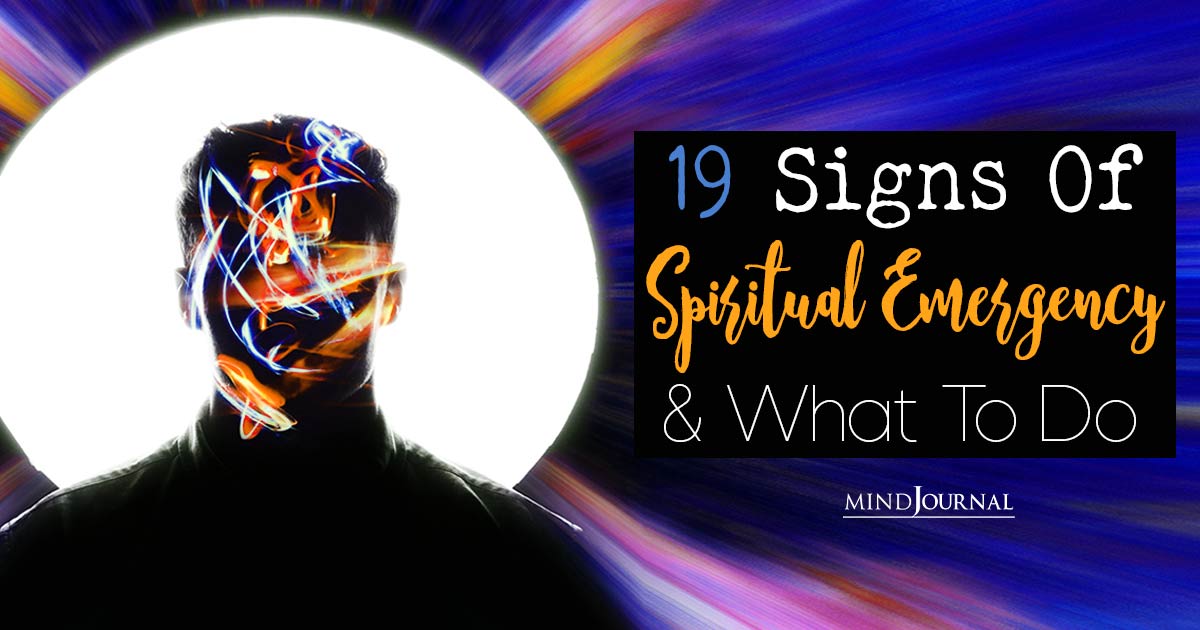







Leave a Reply